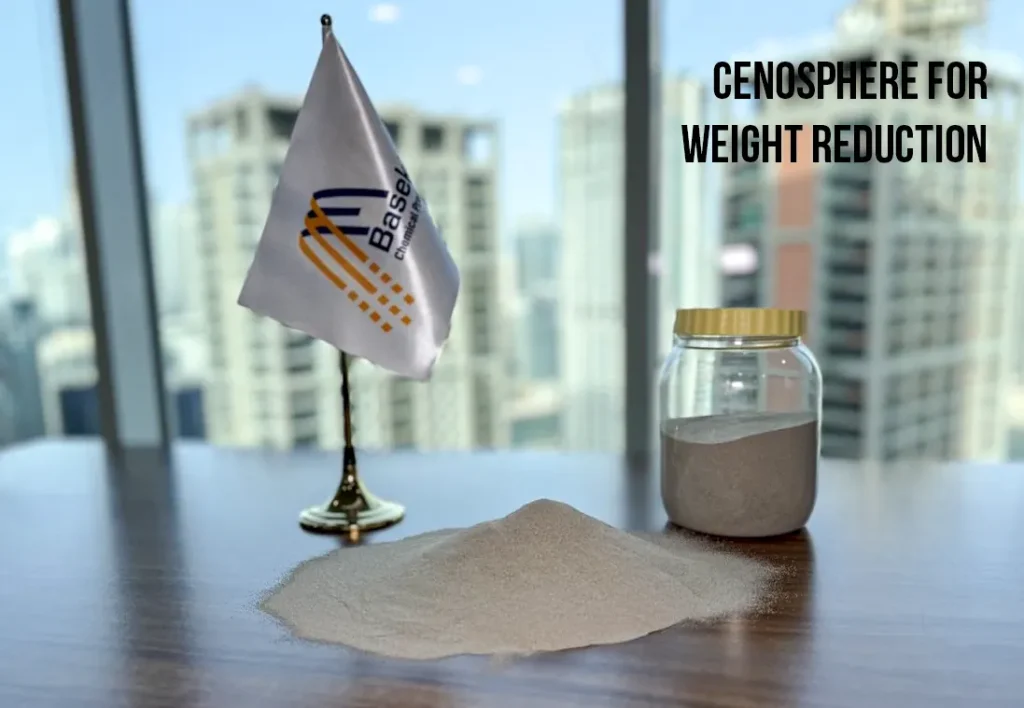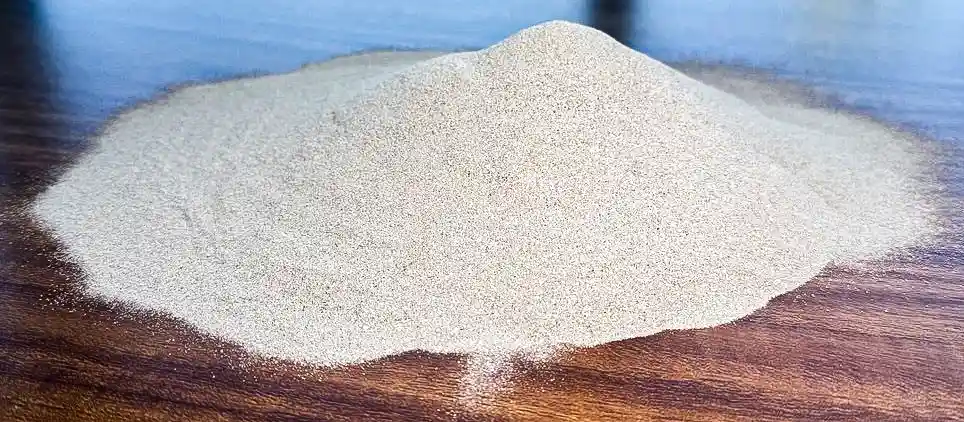
Cenosphere Supplier for weight reduction
- Home
- Cenosphere Supplier for weight reduction

Cenosphere suppliers provide lightweight, hollow spheres primarily composed of silica and alumina. These byproducts are formed during the combustion of coal in thermal power plants. Due to their low density and high strength, cenospheres are widely used as a weight-reducing filler in multiple industrial applications.
Grades of Cenosphere
Cenospheres are available in various grades based on factors like:
Particle size distribution
Table of Contents
ToggleColor (gray, white, off-white)
Floatation percentage (typically >90%)
Bulk density (0.4 to 0.8 g/cm³)
Purity of alumina and silica content
Common grades include:
Industrial Grade (for paints, coatings, plastics)
Construction Grade (for lightweight concrete and panels)
Oilfield Grade (for cementing and drilling fluids)
HS Code and CAS Number
For international trade and customs, the following codes are typically used:
HS Code: 26219000 – Ash and residues (other than from the manufacture of iron or steel), containing metals or metal compounds
CAS Number: 93924-19-7 – Cenospheres from fly ash
These codes help ensure proper classification and smooth import/export processes.
Why Choose a Cenosphere Supplier?
Selecting a reliable Cenosphere supplier ensures product quality, consistent availability, and tailored grades to meet diverse application requirements. A trusted supplier also offers technical support, regulatory compliance, and global logistics, making it easier for manufacturers to integrate cenospheres into their processes.
Function of Cenospheres in weight reduction
One of the primary advantages of cenospheres is their ability to reduce the overall weight of materials without compromising structural integrity. Due to their hollow structure and low bulk density (0.4–0.8 g/cm³), they are ideal for use in products where lightness is essential, such as:
Lightweight concrete
Drilling fluids
Thermoplastics
Coatings and plasters
Automotive composites
Key Industries Using Cenospheres
Cenospheres are used across several sectors, including:
1. Oil & Gas Industry
They are mixed into drilling muds and well cements to lighten the load and improve flow properties while maintaining pressure resistance.
2. Paints and Coatings
Cenospheres reduce the density of coatings and enhance insulation properties while improving spreadability.
3. Plastics and Polymers
As filler materials, cenospheres decrease resin use, improve thermal resistance, and increase dimensional stability.
4. Construction Materials
They enhance the fire resistance, durability, and insulation of lightweight concrete blocks and panels.
What to Look for in a Cenosphere Supplier
When selecting a Cenosphere supplier, consider the following factors:
Quality Certifications: ISO or ASTM compliance
Consistent Particle Size Distribution
Chemical Composition: High alumina and silica content
Bulk Density and Floatation Rate
Packaging and Handling Options
Customized Grades for Different Applications
A top supplier will also offer TDS (Technical Data Sheets) and MSDS (Material Safety Data Sheets) to support industrial use.
Packaging and Delivery Options of Cenosphere Supplier
Cenospheres are usually supplied in:
25 kg multi-layer paper bags
500–1000 kg jumbo bags
Moisture-resistant containers
Leading suppliers ensure secure global shipping with clear documentation and short lead times.
Sustainable and Cost-Effective Solution
Using cenospheres not only reduces the weight of materials but also supports sustainability. As a recycled byproduct, cenospheres help reduce the need for mined minerals and synthetic fillers, which lowers production costs and environmental impact.
Find Your Trusted Cenosphere Supplier
Cenospheres are essential for industries seeking weight reduction without sacrificing performance. Whether you’re in the oil and gas sector, construction, or manufacturing, partnering with a reliable Cenosphere supplier ensures you get consistent, high-quality products tailored to your needs.
If you are looking to source cenospheres in bulk, Jumbo bag or want to request a quote, contact a trusted supplier today to discuss your requirements.
Contact Info
Turkey office:No.6 of Fahrettin Pasa Sokak , Galip Erdem steet, Ilkbahar Mah. Turan Gunes Ave. Çankaya Ankara
Phone: 00903125147055
Dubai office: 3509 of the Burligton tower, business bay, dubai-uae
Phone:0097142369830
E-Mail: [email protected]

